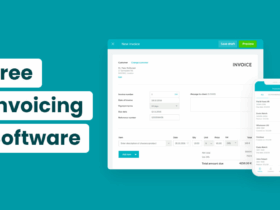What Is Crypto Airdrop?
Blockchain and cryptocurrency businesses utilize crypto airdrops as a marketing tactic to give away free tokens or coins to a targeted audience. A new cryptocurrency, a blockchain project, or an existing crypto asset are frequently promoted in this fashion.
Typically, email lists, cryptocurrency forums, and social media channels are used to publicize airdrops. Individuals must adhere to specific instructions, such as downloading a particular wallet, joining a particular Telegram channel, or carrying out specific chores, in order to participate.
Typically, the tokens or coins are given away for free or in exchange for a minor chore or effort. Companies can employ airdrops to generate interest in their venture, grow the number of cryptocurrency holders, and draw in new users or investors. Airdrops can be a means for people to acquire free cryptocurrency and discover brand-new blockchain projects.
What Is Polynomial Protocol Airdrop?
Polynomial Protocol doesn’t have an own token but could launch one in the future. They’ve just launched perpetual trading so early users who make trades, swaps and use their earn vaults may become eligible for an airdrop if they launch their token.
Polynomial Protocol Although it doesn’t currently have one, may do so in the future. If they launch their own coin, early platform traders may receive an airdrop.
Basic Polynomial Protocol Airdrop Points
| Basic | Details |
|---|---|
| Token Name | Polynomial Protocol |
| Platform | N/A |
| Support | 24/7 |
| Total value | N/A |
| KYC | KYC Is Not Requirement |
| Whitepaper | Click Here To View |
| Max. Participants | Unlimited |
| Collect Airdrop | Click Here To Collect Free Airdrop |
How To Claim Polynomial Protocol Airdrop Step-by-Step Guide:
- Visit the Polynomial Protocol trading website.
- Connect your Optimism wallet and create a Polynomial wallet to start using Polynomial.
- Now click on “Smart Wallet” and deposit sUSD to start trading. You can get sUSD from KuCoin or use their Swap feature.
- Now make trades on the platform.
- Also use their “Swap” and “Earn Vaults” features to increase your chance.
- Early users who make trades, swaps and use their earn vaults may become eligible for an airdrop if they launch their token.
- You could also get Optimism airdrops because they’ve distributed OP tokens to active users in the past.
- Please note that there is no guarantee that they will do an airdrop to early users or will launch their own token. It’s only speculation.
You’re interested in more projects that do not have any token yet and could potentially airdrop a governance token to early users in the future? Then check out list of potential retroactive airdrops to not miss out on the next DeFi airdrop!
How To Check Polynomial Protocol Airdrop Is Real Or Fake
Token or coin distribution to the community through airdrops is common. However, con artists can exploit this and set up phony airdrops to dupe people into disclosing their personal information or cryptocurrency holdings.
- Check the official Polynomial Protocol: To see if an airdrop has been announced, check the official Polynomial protocol website or social media accounts (such as Twitter, Telegram, or Discord). It’s probably a hoax if an airdrop isn’t mentioned.
- Look for details regarding the Airdrop : Real airdrops typically provide comprehensive information on their website or in social media posts, including the number of tokens being released, the requirements for participation, and the deadline. It’s probably a fake if there is little to no information accessible.
- Verify the airdrop announcement’s source : Real airdrops will often be publicized on the project’s official website or social media pages. The announcement is probably a hoax if it originates from an unreliable email, website, or social media account.
- Be wary of requests for personal information or crypto holdings: Be vigilant of requests for your cryptocurrency holdings or personal information. Real airdrops won’t request secret keys or passwords, or any other sensitive personal data. It’s probably a fraud if you’re asked for this information.
- Apply common sense : An airdrop is most likely scam if it sounds too good to be true. Real airdrops typically give away a modest quantity of tokens to a broad audience. It’s probably a fraud if you’re promised a lot of tokens for little to no work.
- In Summary , in order to determine whether a Polynomial protocol airdrop is real or fake, you should confirm the information on the official website or social media accounts, look into the announcement’s source, avoid disclosing personal information or cryptocurrency holdings, and use common sense to judge the airdrop’s legitimacy.
What are the risks of participating in an airdrop?
A marketing tactic known as a “airdrop” includes giving out free tokens or coins to participants. While taking part in airdrops can be a thrilling way to receive free cryptocurrency, there are a number of risks involved.
Scammers frequently employ airdrops as a strategy to deceive victims into disclosing their secret keys or personal data. Scammers may fabricate false airdrops or pretend to be reputable projects in order to take your money. Before participating, it’s crucial to do extensive research about the project and the airdrop. You should also never divulge your private keys or personal information.
Polynomial Protocol Airdrop Pros Or Cons
Pros of participating in an airdrop:
- Increased Awareness : An increase in knowledge of the platform and its token can be achieved through airdrops. By giving away tokens without charge, the platform may attract more users, which might result in greater adoption.
- Community Development: Airdrops can aid in creating a vibrant platform community. People may become more invested in the platform’s success and may be more likely to take part in governance or other community-driven initiatives if they receive tokens for free.
- Low Cost: For blockchain projects, airdrops may be an efficient marketing plan. The network can circumvent the exorbitant expenditures of conventional advertising and marketing efforts by giving tokens directly to users.
Cons of participating in an airdrop:
- Incentivizing the Wrong Behavior: Airdrops have the potential to occasionally encourage people to act in ways that are not desired. For instance, people can open more accounts to acquire more tokens, or they might sell the tokens right away rather than keeping them for a lengthy time.
- Dilution of Value: By raising the total quantity, airdrops have the potential to reduce the value of already-issued tokens. This might result in a drop in the value of the tokens, which would be bad for holders and investors.
- Regulatory Risks : Airdrops can present regulatory problems because giving away tokens for free might be viewed as a securities offering in some jurisdictions. The platform and its staff may face legal and administrative problems as a result.
Polynomial Protocol Airdrop Final Verdicts
The Ethereum blockchain-based decentralized finance (DeFi) platform Polynomial Protocol allows users to buy, sell, lend, and borrow cryptocurrency. social media platforms for the most recent news and details. Before making any financial decisions or taking part in any airdrop or token distribution programs, it’s always crucial to use care and conduct your own research.








































